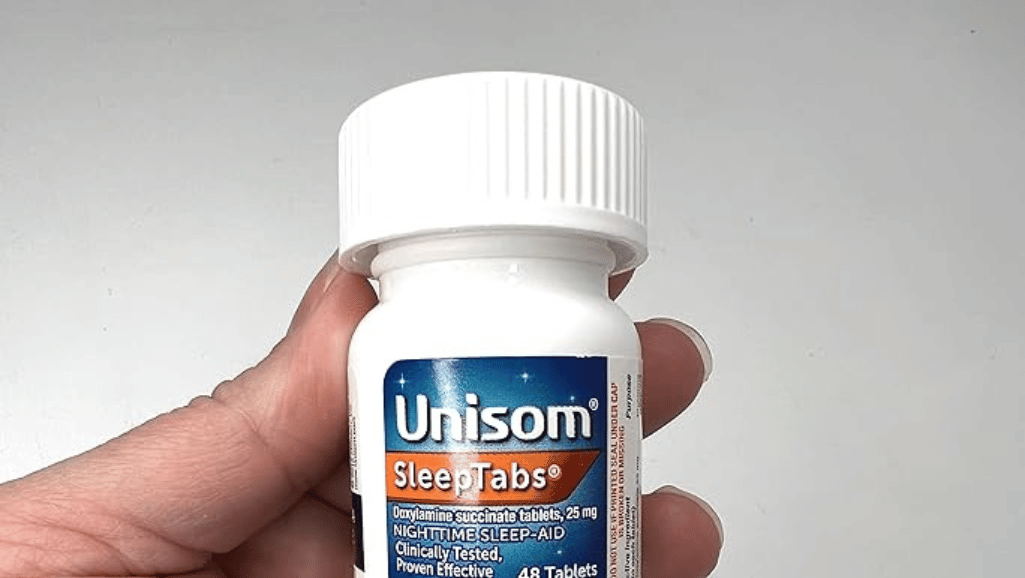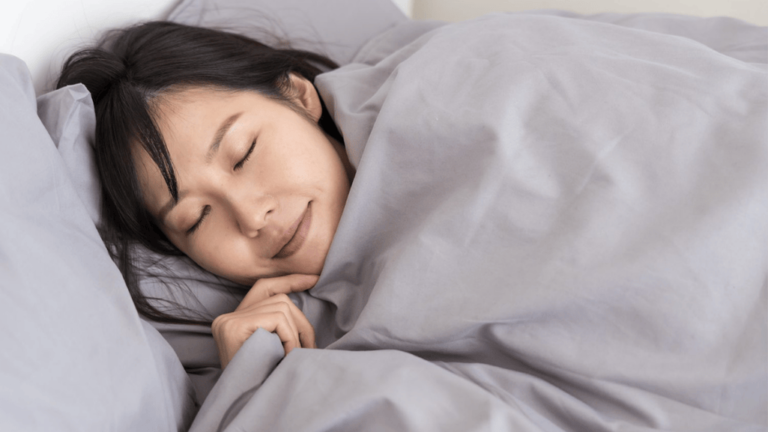Getting a good night’s sleep is essential for your overall health and well-being. However, occasional insomnia can disrupt your sleep patterns, leaving you feeling tired and groggy the next day. If you’re struggling with occasional sleeplessness, you may be considering over-the-counter medications like Unisom or Benadryl to help you get the rest you need. But which one works better as a sleep aid?
Both Unisom and Benadryl are antihistamines that have sedative side effects, making them popular choices for treating occasional insomnia. While they work similarly, there are some differences in their active ingredients and effectiveness. In this article, we’ll compare Unisom vs Benadryl for sleep, explore their mechanisms of action, discuss potential side effects, and provide guidance on dosage and alternative insomnia remedies.
Whether you’re considering Unisom, Benadryl, or other over-the-counter medications to help you get a better night’s sleep, it’s essential to understand how these sleep aids work and what precautions you should take before using them. By the end of this article, you’ll have a clearer understanding of which product may be the best choice for your occasional insomnia and how to use it safely and effectively.
Key Takeaways
- Unisom and Benadryl are both antihistamines used as over-the-counter sleep aids for occasional insomnia
- The active ingredients in Unisom (doxylamine succinate) and Benadryl (diphenhydramine) have sedative effects that promote drowsiness
- Doxylamine succinate in Unisom has a longer-lasting effect (up to 8 hours) compared to diphenhydramine in Benadryl (up to 7 hours)
- Common side effects of these sleep aids include daytime drowsiness, dry mouth, and nausea
- Alternative insomnia remedies like melatonin and valerian root may be considered for those seeking natural sleep aids
Understanding Unisom and Benadryl as Sleep Aids
Unisom and Benadryl are two popular over-the-counter medications that are often used as sleep aids. While they are primarily marketed as antihistamines for treating allergies, their sedative effects have made them go-to options for people struggling with occasional sleeplessness. However, it is essential to understand how these medications work and their potential drawbacks before relying on them for better sleep.
The Role of Antihistamines in Promoting Sleep
Antihistamines like diphenhydramine and doxylamine succinate, the active ingredients in Benadryl and Unisom respectively, work by blocking the action of histamine in the body. Histamine is a chemical messenger that plays a role in triggering allergic reactions, but it also helps regulate the sleep-wake cycle. By blocking histamine, these medications can cause drowsiness and help people fall asleep faster.
However, the American Academy of Sleep Medicine discourages the use of antihistamines as sleep aids due to weak evidence on their effectiveness. Additionally, a case study involving over 40,000 participants aged 65 to 99 showed an increased risk of dementia and Alzheimer’s disease from anticholinergic medication use, which includes first-generation antihistamines like Benadryl.
Comparing the Active Ingredients: Diphenhydramine vs Doxylamine Succinate
While both diphenhydramine and doxylamine succinate are antihistamines with sedative effects, they have some differences in their chemical structure and potential side effects. Here’s a comparison of these two active ingredients:
| Diphenhydramine (Benadryl) | Doxylamine Succinate (Unisom) |
|---|---|
| First-generation antihistamine | First-generation antihistamine |
| Blocks histamine H1 receptors | Blocks histamine H1 receptors |
| Classified as FDA pregnancy category B | Limited safety data for pregnant women |
| May cause more drowsiness and cognitive impairment | Tends to cause less morning drowsiness |
| Potential anticholinergic side effects (dry mouth, constipation) | Fewer reported anticholinergic side effects |
It’s important to note that while these medications can provide short-term relief for occasional insomnia, they are not recommended for long-term use due to the risk of side effects and potential adverse health outcomes. The American Academy of Sleep Medicine and European Sleep Research Society recommend cognitive behavioral therapy as a first-line treatment for chronic insomnia.
Between 50 and 70 million Americans suffer from ongoing sleep disorders such as insomnia or sleep apnea, highlighting the need for safe and effective sleep solutions.
How Benadryl Works for Sleep
Benadryl, a popular over-the-counter medication, is often used as a sleep aid due to its sedative properties. The active ingredient in Benadryl, diphenhydramine, works by blocking histamines in the body, which can cause drowsiness and promote sleep.
Diphenhydramine: Blocking Histamines and Inducing Drowsiness
Diphenhydramine is an antihistamine that comes in various forms, such as diphenhydramine citrate, diphenhydramine hydrochloride, and diphenhydramine tannate. These different forms all work similarly by blocking histamine receptors in the body, which can alleviate allergy symptoms and cause drowsiness.
“Diphenhydramine is a first-generation antihistamine that crosses the blood-brain barrier and binds to histamine receptors in the brain, leading to sedation and drowsiness.” – Dr. Michael Breus, The Sleep Doctor
When diphenhydramine binds to histamine receptors, it prevents histamine from activating these receptors, which can help reduce allergy symptoms. However, this action also has the side effect of causing drowsiness, making it an effective short-term sleep aid for some individuals.
Benadryl’s Sedative Effect Duration
The sedative effect of diphenhydramine can last for several hours, typically up to seven hours, depending on the individual. This prolonged drowsiness can be beneficial for those struggling to fall asleep or stay asleep throughout the night.
| Sleep Aid | Active Ingredient | Dosage | Duration of Effect |
|---|---|---|---|
| Benadryl | Diphenhydramine | 25-50 mg | 4-7 hours |
| Simply Sleep | Diphenhydramine | 25-50 mg | 4-7 hours |
| Nytol | Diphenhydramine | 25-50 mg | 4-7 hours |
| Sominex | Diphenhydramine | 25-50 mg | 4-7 hours |
Several sleep aids contain diphenhydramine as their active ingredient, including Benadryl, Simply Sleep, Nytol, Sominex, 40 Winks, and generic versions. These medications typically provide similar sedative effects and duration of action due to their shared active ingredient.
Unisom’s Mechanism of Action for Sleep
Unisom, a popular over-the-counter sleep aid, works by harnessing the power of the antihistamine doxylamine succinate to promote restful sleep. This active ingredient, found in products like Unisom SleepTabs, Wal-Som, and Nighttime Sleep Aid, exhibits potent sedative properties that help users fall asleep faster and maintain a deep, uninterrupted slumber throughout the night.
Doxylamine succinate functions by blocking histamine receptors in the brain, effectively reducing the alertness and wakefulness associated with histamine activity. By diminishing these stimulating effects, this antihistamine creates a calming and drowsy state conducive to falling asleep quickly and effortlessly. Notably, doxylamine succinate boasts a longer duration of action compared to other common sleep aids like diphenhydramine, with its sedative properties often lasting up to a full eight hours.
Clinical studies have demonstrated the efficacy of Unisom SleepTabs, with findings indicating that doxylamine succinate can help individuals fall asleep up to 30 minutes faster than without medication. This rapid onset of action, combined with the extended release of the antihistamine throughout the night, ensures that users can achieve a complete and restorative sleep cycle. A properly supportive pillow can further enhance the sleep-promoting effects of Unisom by optimizing spinal alignment and reducing neck and shoulder discomfort.
Unisom SleepTabs contain 25 mg of the active ingredient doxylamine succinate per tablet, delivering a powerful yet safe dose to effectively combat occasional sleeplessness.
While doxylamine succinate is recognized for its potent sedative properties, it is essential to note that Unisom products are designed for short-term use only. For individuals struggling with chronic insomnia or persistent sleep issues, consulting a healthcare professional is crucial to identify underlying causes and develop a comprehensive treatment plan. However, for those seeking relief from occasional sleeplessness due to factors like jet lag, travel, or temporary stress, Unisom’s targeted action on histamine receptors can provide the much-needed rest and rejuvenation they desire.
| Unisom Product | Active Ingredient | Dosage |
|---|---|---|
| Unisom SleepTabs | Doxylamine Succinate (25 mg) | 1 tablet before bedtime |
| Unisom SleepGels | Diphenhydramine HCl (50 mg) | 1 softgel before bedtime |
| Unisom SleepMelts | Diphenhydramine HCl (25 mg) | 1-2 tablets before bedtime |
| Unisom PM Pain | Diphenhydramine HCl (25 mg) & Acetaminophen (500 mg) | 1-2 caplets at bedtime |
By understanding the mechanism of action behind Unisom’s effectiveness, individuals can make informed decisions about their sleep health and take proactive steps to ensure a restful night’s sleep. Whether it’s reaching for a trusted antihistamine like doxylamine succinate during occasional bouts of sleeplessness or prioritizing a comfortable sleep environment and relaxing bedtime routine, the path to rejuvenating slumber is within reach.
Side Effects of Using Benadryl and Unisom for Sleep
While Benadryl and Unisom can be effective in promoting sleep, it’s essential to be aware of the potential side effects associated with these medications. As with any drug, individual reactions may vary, and some people may experience more severe or persistent side effects than others. If you’re considering using either of these sleep aids, it’s crucial to understand the risks and consult with your healthcare provider to determine if they’re appropriate for your specific situation.
Common Side Effects of Diphenhydramine
Diphenhydramine, the active ingredient in Benadryl, can cause several common side effects. These may include:
- Drowsiness
- Dry mouth
- Constipation
- Blurred vision
- Dizziness
- Nausea
- Headache
In most cases, these side effects are mild and should subside within 24 hours. However, if you experience severe or persistent side effects, it’s important to stop taking the medication and consult with your healthcare provider. It’s also worth noting that older adults may be more sensitive to the side effects of diphenhydramine, particularly drowsiness, dizziness, and confusion, which can increase the risk of falls.
Potential Side Effects of Doxylamine Succinate
Doxylamine succinate, the active ingredient in Unisom, belongs to the same class of medications as diphenhydramine and can cause similar side effects. However, some individuals may be more prone to certain side effects when taking doxylamine succinate, such as:
- Nausea
- Chest congestion
- Nervousness or excitability
- Dry mouth, nose, or throat
As with diphenhydramine, these side effects are usually mild and should resolve on their own. However, if you experience severe or persistent side effects, it’s crucial to inform your healthcare provider and seek medical attention if necessary. In rare cases, more serious side effects can occur, such as allergic reactions, sudden eye pain, or difficulty urinating. If you experience any of these symptoms, contact your doctor immediately.
According to the FDA, consumers in the U.S. can report side effects of these medications by calling 1-800-FDA-1088 or visiting www.fda.gov/medwatch. In Canada, consumers can report side effects to Health Canada by calling 1-866-234-2345.
It’s important to note that certain individuals may be more susceptible to the side effects of these medications. This includes people with pre-existing medical conditions such as breathing problems, glaucoma, heart issues, and stomach problems. Additionally, children may experience agitation or excitement instead of drowsiness when using antihistamines like doxylamine. Pregnant and breastfeeding individuals should consult their doctor before using these sleep aids, as the medication may pass into breast milk.
By understanding the potential side effects of Benadryl and Unisom, you can make an informed decision about whether these sleep aids are right for you. If you experience any concerning symptoms or have questions about the safety of these medications, don’t hesitate to reach out to your healthcare provider for guidance.
Risks of Untreated Insomnia
Persistent insomnia, if left untreated, can lead to a host of health concerns that can significantly impact your overall well-being. Studies have shown that individuals who consistently struggle with insomnia are at a higher risk of developing serious conditions such as high blood pressure, type 2 diabetes, and congestive heart failure.
Even occasional bouts of insomnia can have detrimental effects on your daily life. Lack of sleep can decrease productivity at work or school, increase the likelihood of accidents due to fatigue, and contribute to feelings of depression and anxiety. It’s crucial to address insomnia promptly to prevent these potential health concerns from escalating.
| Health Concern | Risk Increase |
|---|---|
| High Blood Pressure | 24-58% |
| Type 2 Diabetes | 28-84% |
| Congestive Heart Failure | 44-75% |
While over-the-counter sleep aids like Unisom and Benadryl can provide temporary relief, it’s essential to address the underlying causes of your insomnia. Lifestyle changes, such as maintaining a consistent sleep schedule, avoiding electronics before bedtime, and creating a relaxing sleep environment, can help improve sleep quality and reduce the risk of developing health concerns associated with untreated insomnia.
Don’t let insomnia take control of your life. Prioritize your sleep and take proactive steps to ensure a restful night’s sleep, every night.
If you find that your insomnia persists despite making lifestyle changes and using over-the-counter sleep aids, it’s important to consult with your healthcare provider. They can help identify any underlying health issues contributing to your sleep problems and develop a personalized treatment plan to help you achieve the restorative sleep your body needs to maintain optimal health and well-being.
Recommended Dosage for Unisom and Benadryl
When considering the use of Unisom or Benadryl for sleep, it’s crucial to understand the recommended dosage guidelines for adults and children. These antihistamine medications can be effective in promoting sleep, but it’s essential to follow the proper dosage recommendations to minimize potential side effects and ensure safe usage. According to a study, approximately 4% of adults in the United States used prescription sleep aids between 2005 and 2010 (Medical News Today).
Dosage Guidelines for Adults and Children
For adults and children 12 years and older, the recommended dosage of Unisom (doxylamine succinate) is 25 mg taken orally 30 minutes before bedtime. It’s important to note that Unisom should never be given to children under 12 years of age. When it comes to Benadryl (diphenhydramine), the recommended dose for adults and children 12 and over is 50 mg taken orally at bedtime. In some cases, diphenhydramine citrate may require a higher dose of up to 76 mg.
Diphenhydramine should only be used in younger children under the guidance of a pediatrician and should never be given to children 2 years or younger. It’s worth noting that up to 85% of pregnant women experience nausea and vomiting, and more than 30% may require additional treatment with an antiemetic like doxylamine.
| Medication | Adult Dosage (12+) | Child Dosage (Under 12) |
|---|---|---|
| Unisom (Doxylamine) | 25 mg orally 30 minutes before bedtime | Not recommended |
| Benadryl (Diphenhydramine) | 50 mg orally at bedtime | Only under pediatrician guidance; never for children under 2 |
Precautions and Interactions with Other Medications
While OTC sleep aids like Unisom and Benadryl are generally safe when taken as directed, there are some important precautions to keep in mind. If you find yourself needing to take these medications more than three times per week, it’s best to consult with your healthcare provider to discuss more appropriate and effective treatment options.
Always seek your healthcare provider’s approval before taking Unisom or Benadryl if you are currently taking medications for anxiety or depression. It’s crucial to avoid taking these antihistamines with MAOIs, alcohol, or other medications that cause drowsiness, as this can lead to dangerous interactions and side effects.
“Understanding the recommended dosage guidelines and potential interactions is key to using Unisom and Benadryl safely and effectively for improved sleep.”
Remember, while these medications can provide short-term relief from insomnia, they should not be relied upon as a long-term solution. If sleep problems persist, it’s essential to work with your healthcare provider to identify underlying causes and develop a comprehensive treatment plan tailored to your individual needs.
Alternative Over-the-Counter Sleep Remedies
If you find the side effects of Unisom or Benadryl intolerable, don’t lose hope. There are several natural sleep alternatives available over-the-counter that may help you achieve a more restful night’s sleep without the unpleasant consequences. Two popular options are melatonin and valerian root, which work differently to promote better sleep quality.
Melatonin: Regulating the Sleep-Wake Cycle
Melatonin is a hormone naturally produced by the pineal gland in the brain, playing a crucial role in regulating the sleep-wake cycle. As a supplement, melatonin is available in two forms: synthetic and animal-derived. While the effectiveness of melatonin varies among individuals, with some experiencing improved sleep quality and others noticing no benefits, studies have shown that melatonin supplements in doses of 3–10 mg can improve overall sleep quality.
Although there is no universally recommended dosage, manufacturers typically suggest taking between 0.5mg and 3mg about 30 minutes before bedtime. It’s important to start with the lowest effective dose and gradually increase if needed, as taking too much melatonin can lead to side effects such as headaches, dizziness, and daytime sleepiness.
Valerian Root: A Traditional Herbal Sleep Aid
Valerian root, an herb native to Europe and Asia, has been used for centuries to treat insomnia and anxiety. It is believed to work by increasing the levels of gamma-aminobutyric acid (GABA) in the brain, promoting a calming and sedative effect. While the effectiveness of valerian root in treating insomnia remains uncertain, some studies suggest that valerian root taken in doses of 300–600 mg may improve sleep quality and symptoms in some individuals.
Although there is no standard dosage for valerian root, most supplements contain between 300 mg and 600 mg per dose, which is generally considered safe. However, it’s crucial to consult with a healthcare professional before starting any new supplement regimen, as valerian root may interact with certain medications and cause side effects such as dizziness, headaches, and gastrointestinal discomfort.
| Natural Sleep Aid | Typical Dosage Range | Potential Benefits |
|---|---|---|
| Melatonin | 0.5mg – 3mg | Regulates sleep-wake cycle, improves sleep quality |
| Valerian Root | 300mg – 600mg | Promotes calmness, may improve sleep quality |
In addition to melatonin and valerian root, other natural sleep remedies worth exploring include magnesium, lavender aromatherapy, and passionflower extract. While the evidence supporting their effectiveness may vary, these alternatives offer potential solutions for those seeking to improve their sleep quality without relying on antihistamine-based sleep aids like Unisom or Benadryl.
“Roughly 70 million Americans suffer from chronic sleep problems, as reported by the Centers for Disease Control and Prevention.”
With so many people struggling with sleep issues, it’s important to remember that finding the right solution may take some trial and error. Be patient, consult with your healthcare provider, and don’t give up on your quest for a better night’s rest.
Unisom vs Benadryl for Sleep: Comparing Effectiveness and Safety
When it comes to choosing between Unisom and Benadryl for a better night’s sleep, it’s essential to consider both the effectiveness comparison and safety comparison of these popular over-the-counter sleep aids. While both medications contain antihistamines that promote drowsiness, their active ingredients and duration of effects differ slightly.
Diphenhydramine, the active ingredient in Benadryl, can provide a sedative effect lasting up to seven hours, while doxylamine succinate, found in Unisom, tends to work longer, offering sleep-inducing benefits for up to eight hours. Despite these minor differences, both medications have been shown to improve sleep quality in individuals experiencing occasional insomnia.
“Out of the common over-the-counter sleep aid agents analyzed (diphenhydramine, melatonin, and valerian), melatonin showed the most consistent beneficial effects on sleep measures, particularly sleep onset and sleep quality, compared to placebo in clinical studies, especially in prolonged-release formulations for older individuals with diagnosed insomnia.”
When considering safety, both Unisom and Benadryl have similar side effect profiles, which may include:
- Nausea
- Headache
- Dry mouth
- Chest congestion (more common with doxylamine succinate)
- Nervousness (more common with doxylamine succinate)
These side effects are generally mild and short-lived, resolving within 24 hours of taking the medication. However, it’s crucial to follow the recommended dosage guidelines and consult with a healthcare provider if you need to use these sleep aids more than three times per week or if you’re taking other medications for anxiety or depression.
It’s worth noting that while both Unisom and Benadryl are considered safe for short-term use in adults, there are age restrictions when it comes to children. Doxylamine succinate (Unisom) should never be given to children under 12, whereas diphenhydramine (Benadryl) should only be used in children under the guidance of a pediatrician. To learn more about the differences between sleep medications, sleep aids, and sleep, consult reliable sources and your healthcare provider.
| Sleep Aid | Active Ingredient | Duration of Effects | Recommended Adult Dosage |
|---|---|---|---|
| Unisom | Doxylamine Succinate | Up to 8 hours | 25 mg, 30 minutes before bedtime |
| Benadryl | Diphenhydramine | Up to 7 hours | 50 mg at bedtime |
In summary, when comparing the effectiveness and safety of Unisom and Benadryl for improving sleep quality, both medications offer similar benefits and risks. The choice between the two may come down to personal preference, as well as individual factors such as age, medical history, and other medications being taken. Always consult with a healthcare professional before starting any new sleep aid regimen to ensure the best possible outcomes for your unique situation.
Conclusion
In the quest for a better night’s sleep, many people turn to over-the-counter medications like Unisom and Benadryl. While both can be effective in promoting sleep, it’s essential to understand their differences in terms of safety, side effects, and overall effectiveness. Unisom, containing doxylamine succinate, is primarily marketed as a sleep aid and tends to have a longer-lasting sedative effect compared to Benadryl, which contains diphenhydramine and is often used for allergy relief. However, both medications can cause similar side effects, such as drowsiness, dry mouth, and blurred vision.
When considering Unisom vs Benadryl for sleep, it’s crucial to follow the recommended dosage and be aware of potential interactions with other medications or health conditions. Unisom is generally considered safe for short-term use, up to two weeks, to avoid developing a tolerance or dependence. If you find the side effects of these antihistamines bothersome, alternative OTC sleep remedies like melatonin or valerian root may be worth exploring, although their effectiveness can vary. Ultimately, the choice between Unisom and Benadryl for occasional insomnia depends on individual preferences and tolerance for side effects. For a comprehensive comparison of these sleep aids, consult this guide.
While OTC sleep aids can provide temporary relief, it’s essential to address the underlying causes of chronic sleep issues. If insomnia persists or affects your daily life, seeking the advice of a sleep medicine specialist can help identify the root cause and develop an appropriate treatment plan, which may include cognitive behavioral therapy or prescription medications. Remember, prioritizing sleep hygiene and making lifestyle changes, such as establishing a consistent sleep schedule and creating a relaxing bedtime routine, can go a long way in improving sleep quality and overall well-being.












